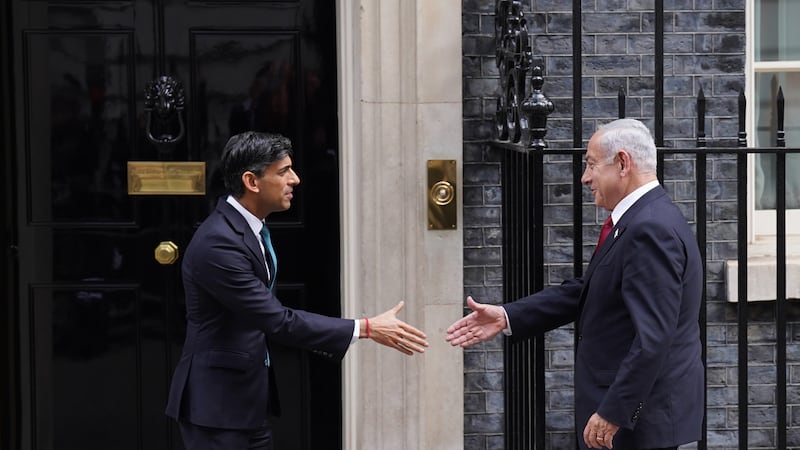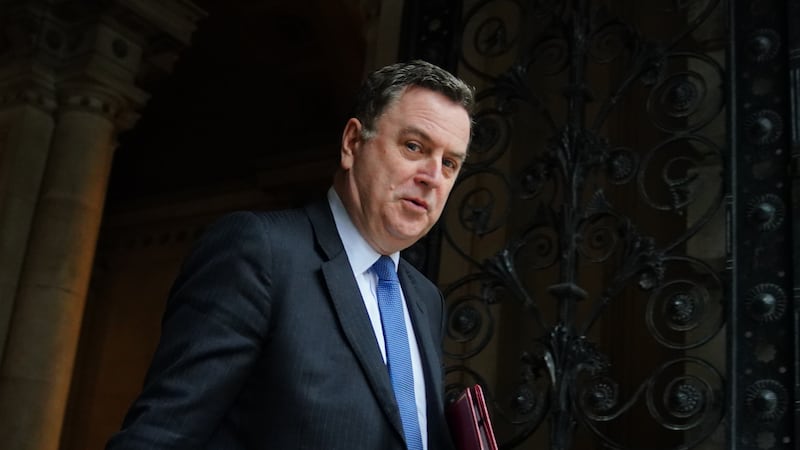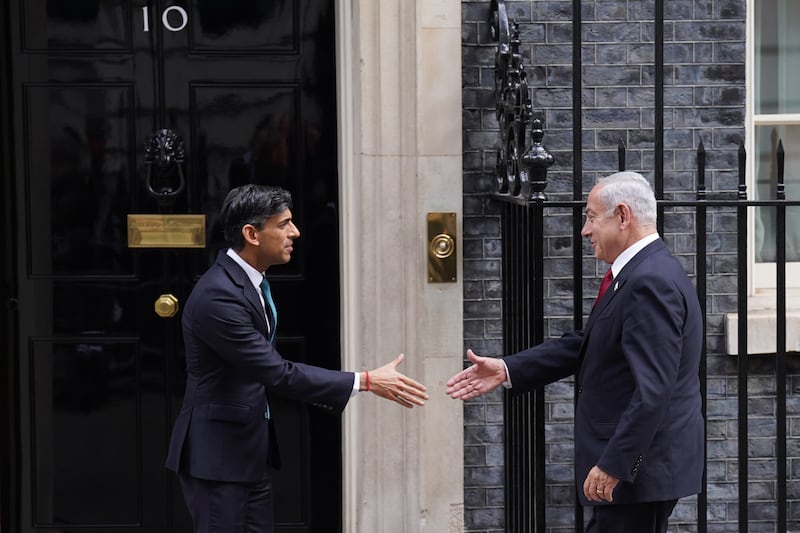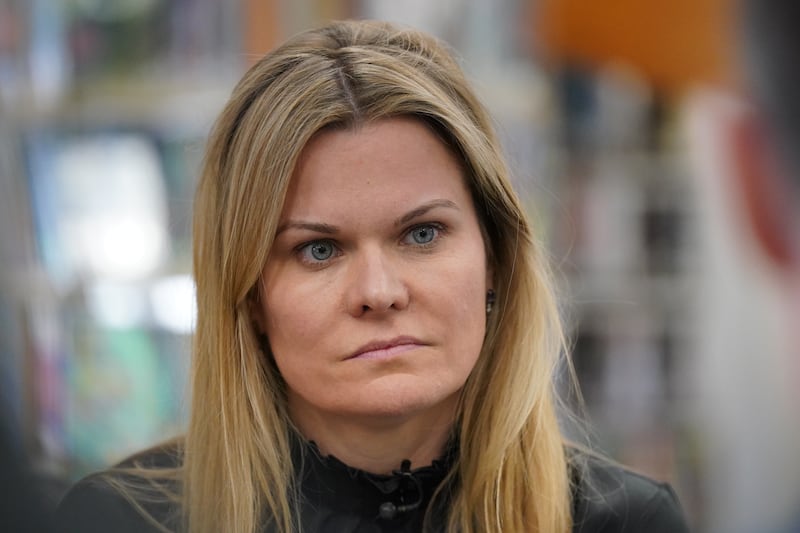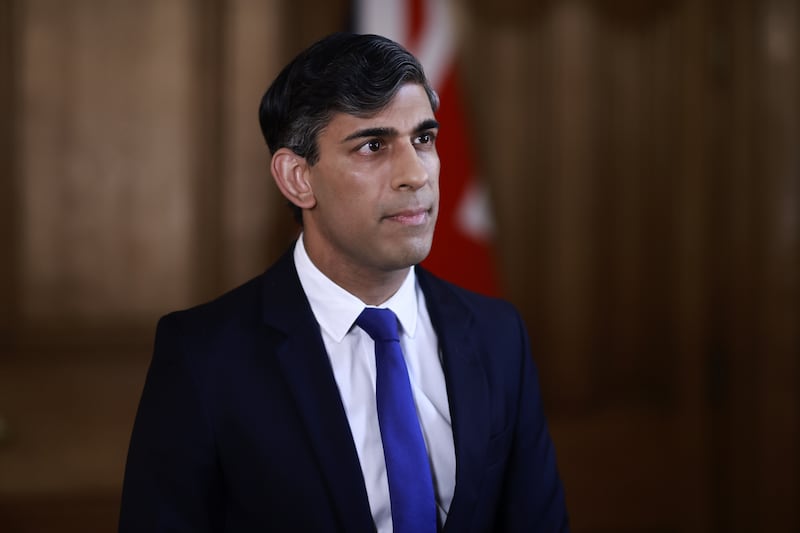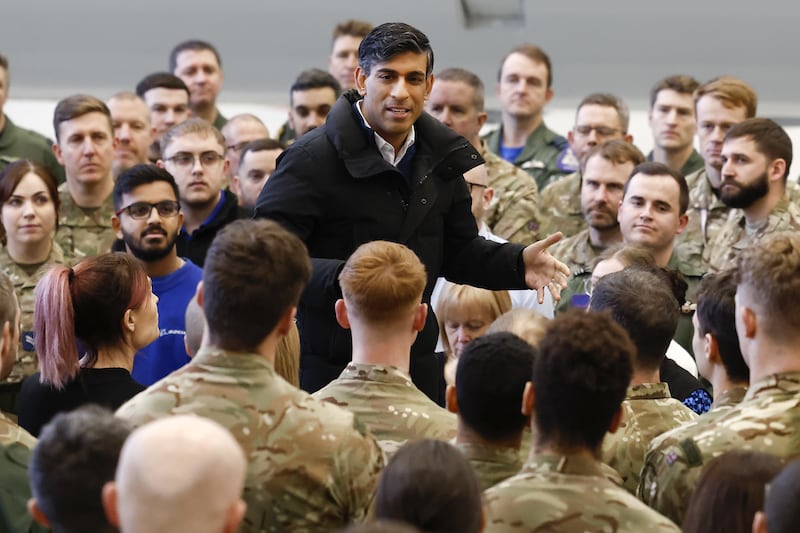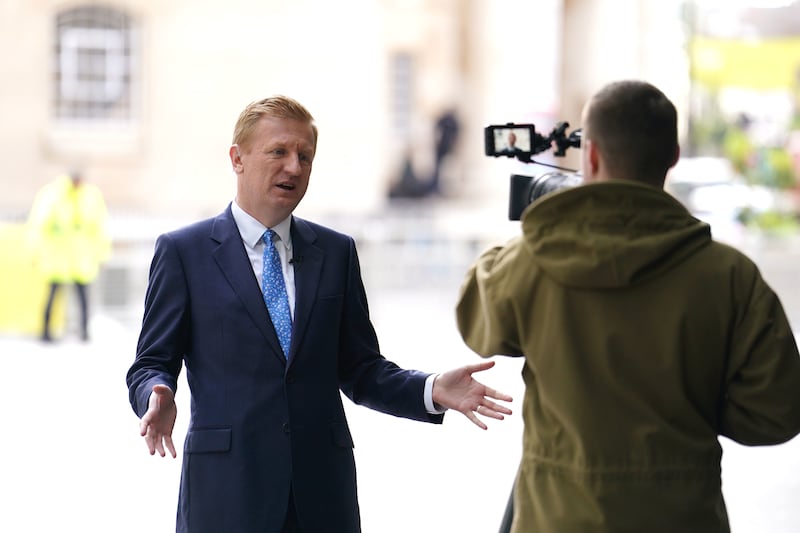Rishi Sunak is still seeking to speak to Israeli Prime Minister Benjamin Netanyahu to urge him to show restraint in response to Iran’s missile and drone attack.
The Prime Minister had expected to speak to his counterpart on Monday, but Israeli media reported that Mr Netanyahu was refusing to take calls from world leaders seeking to influence the response to Saturday night’s attack.
Downing Street denied the UK – which supplied RAF jets to help thwart Iran’s barrage – was being “taken for granted” by Israel and suggested Mr Netanyahu’s other commitments meant a call had not been possible.
The Prime Minister’s official spokesman said: “He has obviously been in discussions with his war cabinet.
“The Foreign Secretary and Defence Secretary have been speaking to their counterparts.”
The spokesman added: “Our position has been made very clearly. We are now working with allies in the region, including Israel, to de-escalate the situation.”
Mr Sunak told MPs on Monday he would speak to Mr Netanyahu “shortly” to express solidarity with Israel “and to discuss how we can prevent further escalation”.
“All sides must show restraint,” the Prime Minister added.
Foreign Secretary Lord Cameron, who is reportedly set to visit Israel soon, has urged Tel Aviv to be “smart as well as tough” by not escalating the conflict with Iran.
Today I have been speaking with counterparts in Lebanon and United Arab Emirates.
I reiterated the UK’s condemnation of Iran’s attack, as well as the urgent need to work with partners in the region to de-escalate tensions.
— David Cameron (@David_Cameron) April 15, 2024
Mr Sunak has come under pressure from senior Tories and the Israeli government to ban Iran’s Islamic Revolutionary Guard Corps (IRGC) as a terrorist organisation in the wake of the attack.
But doing so could jeopardise the UK’s ability to engage with Tehran, a Government minister suggested.
The UK is keen to preserve diplomatic channels of communication to minimise the risk of a miscalculation in the Middle East which could ignite a wider war.
The IRGC wields significant influence over Iran’s politics and has been blamed for destabilising the Middle East through its support for groups including Hamas and Hezbollah targeting Israel and the Houthis in Yemen who have attacked Red Sea shipping.
Senior Tories including former leader Sir Iain Duncan Smith and ex-home secretary Suella Braverman have urged the Prime Minister to proscribe the group as a terrorist organisation.
But Home Office minister Laura Farris told LBC: “I don’t think there’s any disagreement, actually, on the principle.
“We’re not for a second defending the IRGC. We’re simply saying that maintaining that channel with Tehran at this moment in time is, at present, in our national interest.”
She told Sky News: “Nobody is denying that they are a malign force. We have repeatedly sanctioned both individual commanders and the IRGC more generally, so that puts very severe restrictions on their ability to move and on other freedoms that they would have had. We are not suggesting they are not a problem.”
Mr Sunak has indicated that any further action could be co-ordinated with the UK’s allies in the G7 group of major democracies.
The United States has already designated the IRGC as a terrorist organisation.
